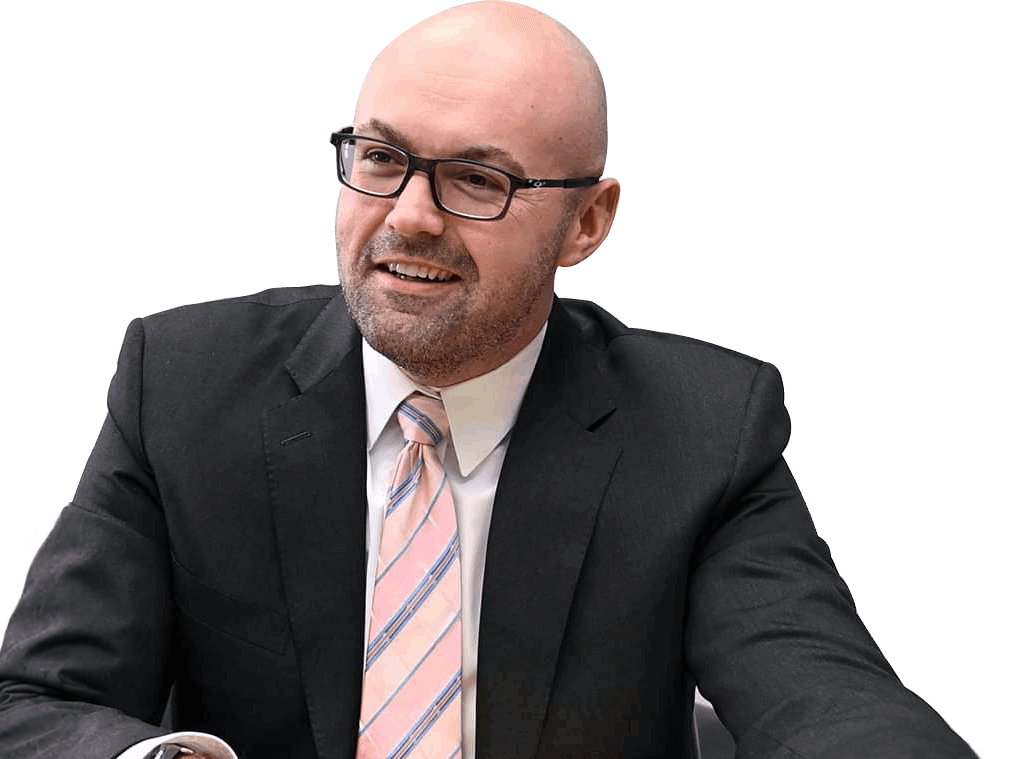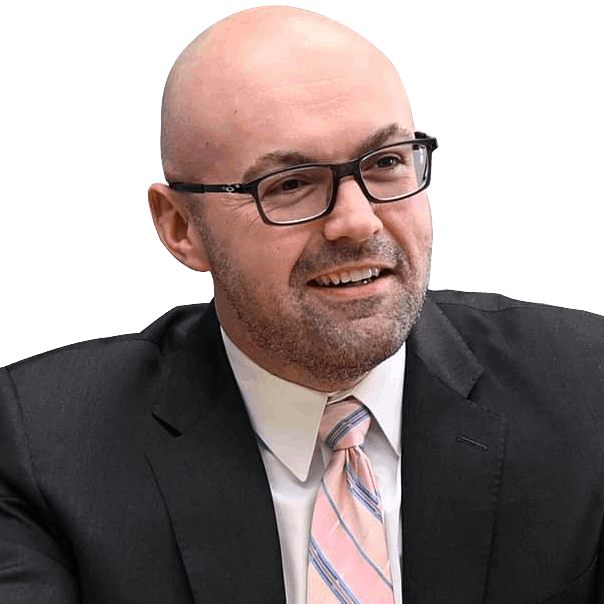South Deering, IL, located on Chicago’s Southeast Side, is a community served by local and regional healthcare institutions. While many residents receive necessary care, hospital negligence remains a persistent issue. Medical errors, miscommunications, and operational failures continue to put South Deering patients at risk. These preventable mistakes often lead to long-term complications, emotional trauma, and devastating financial consequences.
At Chicago Injury Lawyer, we represent victims of hospital negligence in South Deering. With years of experience and a deep understanding of Illinois malpractice law, our firm investigates institutional failures and advocates for patients harmed by healthcare providers.
Call us now at 312-261-5656 for a free, no-obligation consultation, available 24/7. With our no-fee-unless-we-win policy, you can focus on your recovery while we handle the rest.
Hospital Negligence in South Deering Facilities
Hospital negligence in South Deering medical centers may arise from poor staffing levels, lax sanitation protocols, or failure to monitor patients correctly. When hospitals fail to meet the standard of care, patients suffer—sometimes permanently. Common causes include:
- Surgical site infections due to lack of sterilization
- Incorrect medication dosages administered by inattentive staff
- Delayed emergency room evaluations
- Failure to escalate care for deteriorating patients
- Medical devices left inside the body post-surgery
Our legal team reviews patient records, facility policies, and staff actions to determine exactly where breakdowns occurred. We ensure that every case is evaluated with care and depth.
Why Hospital Negligence Happens in South Deering
South Deering shares challenges with many underserved areas of Chicago, including:
- Underfunded hospitals with outdated infrastructure
- Limited access to bilingual care and translation services
- High patient-to-nurse ratios during peak hours
- Gaps in continuity of care between shifts or departments
- Overreliance on temporary staff unfamiliar with local patients
These structural deficits can increase the likelihood of mistakes, particularly when hospitals are overwhelmed. Our attorneys understand the systemic nature of these problems and pursue claims not only against individual practitioners but against the institutions that enable dangerous care conditions.
Types of Hospital Negligence Cases We Handle
We routinely represent clients across a range of hospital negligence claims in South Deering, including:
- Birth injuries due to poor fetal monitoring or delayed C-sections
- Sepsis and bloodstream infections from missed diagnosis
- Medication mix-ups that result in overdose or toxic interactions
- Failure to prevent patient falls or monitor bedbound individuals
- Operating room errors, including anesthesia mismanagement
Working with our internal review counsel and medical experts, we help establish how each element of care failed to meet the standard required by Illinois law.
Life-Altering Injuries Resulting from Medical Negligence
The injuries sustained due to hospital negligence can devastate victims physically, emotionally, and financially. Some of the most common outcomes include:
- Brain damage due to oxygen loss during surgery
- Paralysis from surgical nerve damage
- Cardiac arrest from anesthesia or medication reactions
- Amputation resulting from untreated infections
- Loss of a loved one due to wrongful death
We coordinate with doctors, neurologists, and life care planners to determine the full extent of your injuries and project your future medical needs.
Filing a Hospital Negligence Claim in South Deering
In Illinois, you have two years from the date of discovering the injury to file a malpractice claim. For most South Deering residents, your lawsuit will be filed in the Cook County Circuit Court, which oversees civil litigation for Chicago neighborhoods.
Our process involves:
- Gathering medical records and hospital logs
- Consulting with board-certified specialists
- Reviewing institutional policies and safety violations
- Collaborating with our internal review counsel to build a comprehensive legal argument
We take pride in our attention to detail, especially when hospitals attempt to obscure internal failures.
What to Do If You Suspect Negligence
If you believe a hospital’s actions or inactions harmed you or a family member, follow these critical steps:
- Request all medical records and billing summaries
- Document symptoms, changes in condition, and treatments received
- File a formal complaint with the Illinois Department of Public Health
- Gather discharge notes, prescriptions, and staff names
- Consult an attorney immediately to preserve evidence and meet deadlines
Taking these steps quickly strengthens your legal position and helps avoid institutional cover-ups.
For a free legal consultation, call 312-261-5656Why Choose Our South Deering Hospital Negligence Attorneys
Our firm is uniquely equipped to support South Deering residents because we:
- Specializing in large-scale medical malpractice cases
- Know the unique health disparities affecting Southeast Side communities
- Regularly navigate Cook County’s legal system and procedural requirements
- Operate on a contingency fee—no upfront costs unless we win
We understand that many families are navigating trauma, grief, and confusion. Our job is to shoulder the legal burden while you focus on healing.
EXCELLENTTrustindex verifies that the original source of the review is Google. I can't stress enough how grateful I am that we hired Paul Marriett to help us with our case. His communication was not only timely and thorough but also understandable. He did a phenomenal job guiding us through the process and preparing us for the courtroom, which put our minds at ease. Once our hearing came, he did his job flawlessly and won our case. Additionally, he was quite pleasant to speak with when our judge was behind schedule and while the court was in recess. I highly recommend him to anyone needing an attorney and will reach out again in the future should we ever need representation.Posted onTrustindex verifies that the original source of the review is Google. Very professional and helpful! I would recommend to all my friends and family to hire him. He was eager to know the circumstances of my case even before I hired him. I did contact other lawyers and offices, but none came close to the comfort I felt while talking to Mr. Marriertt, I really felt like he cared about the situation I found myself in. He deserves 6 stars for going above and beyondPosted onTrustindex verifies that the original source of the review is Google. Paul helped me out with a traffic citation. The communication was great as he walked me through my options and what to expect with my court date and plea deal. 10/10 service. Highly recommended. Thanks again, Paul.Posted onTrustindex verifies that the original source of the review is Google. Paul was very professional, sharp dressed and clearly a notch above most in the courtroom. He understood my plight and refused to be bullied. Knows the law to a T....I'm keeping him on speed dial. I think u will trust him too.Posted onTrustindex verifies that the original source of the review is Google. BEYOND satisfied with the services & representation! The communication & efforts have been above & BEYOND! Amazing price as well for a minor traffic hiccup. 11/10 recommend & prefer this firm for any future occurrences!!! Very transparent, & puts in the effort to help you!!!Posted onTrustindex verifies that the original source of the review is Google. If you are needing a lawyer in Rockford or the surrounding areas this is the guy you need to get ahold of! Do not waste your time or money going to someone else.... From the very start Mr. Marriett was on top of his job. I called several lawyers before him and he was the first to thoroughly explain everything I needed to hear without even asking him to. The definition of a great lawyer. Each time we went to court he always let me know ahead of time either in person or via phone what the expectations or options would be going in. I highly recommend Paul Marriett if you are in need of a lawyer!Posted onTrustindex verifies that the original source of the review is Google. Explained everything well. Kept us informed. I'm glad we found him.Posted onTrustindex verifies that the original source of the review is Google. I am very late on sharing my feedback only because I’m google illiterate. Attorney Merriett did a very smart excellent job for me and not real expensive considering how stupid I was to get in trouble . Thank you! For all your professionalism! Bruce P.Posted onTrustindex verifies that the original source of the review is Google. Great service and a reliable lawyer. I'm glad we got him instead of getting anyone else. :)
Get Directions to Our Law Office
Visit us in Chicago for a free consultation
- Address: 101 N Wacker Drive, Suite 100B, Chicago, IL 60606 Get Directions
- Driving Directions: If you’re traveling from The Loop, head north on Wacker Drive. Our office is between Lake and Randolph Streets, easily accessible from I-90 and I-94.
- Parking Options: Convenient parking is available at nearby garages, such as the Wacker & Monroe Garage, and there are metered spaces along N Wacker Drive.
- Landmarks Nearby: Our office is just steps from the Chicago Riverwalk and close to The Loop, making it a convenient location for visitors.
Contact Us
Chicago Injury Lawyers
101 N Wacker Drive, Suite 100B
Chicago, IL 60606
Phone: (312) 261-5656
Email: contact@chicagoinjurylawyer.com
Hours: 24/7

Frequently Asked Questions: South Deering Hospital Negligence
How do I file a complaint against a South Deering hospital?
Contact the Illinois Department of Public Health and request instructions for submitting a complaint. Additionally, reach out to the hospital’s internal grievance coordinator or risk management office.
Where are malpractice lawsuits filed for South Deering cases?
Most claims are filed in Cook County Circuit Court, which handles civil litigation for South Deering and surrounding Chicago neighborhoods.
What medical records are necessary for my case?
You should collect:
Admission and discharge summaries
Imaging and laboratory reports
Nursing notes and medication logs
Incident or injury documentation
Does hospital accreditation play a role in proving negligence?
Yes. Hospitals accredited by national organizations are expected to meet specific care standards. Failure to comply with these benchmarks can bolster your legal claim.
Are local experts available to support my malpractice case?
Yes. We regularly work with doctors, nurses, and specialists familiar with South Deering hospitals, helping us understand protocols and expose deviations in care.
What compensation might I receive?
Potential damages include:
Medical and surgical costs
Lost income and reduced earning potential
Pain, suffering, and emotional trauma
Wrongful death benefits for surviving family members
Have South Deering hospitals faced similar malpractice issues?
Yes. Public records show recurring complaints related to ER delays, staffing shortages, and post-operative complications at area hospitals.



